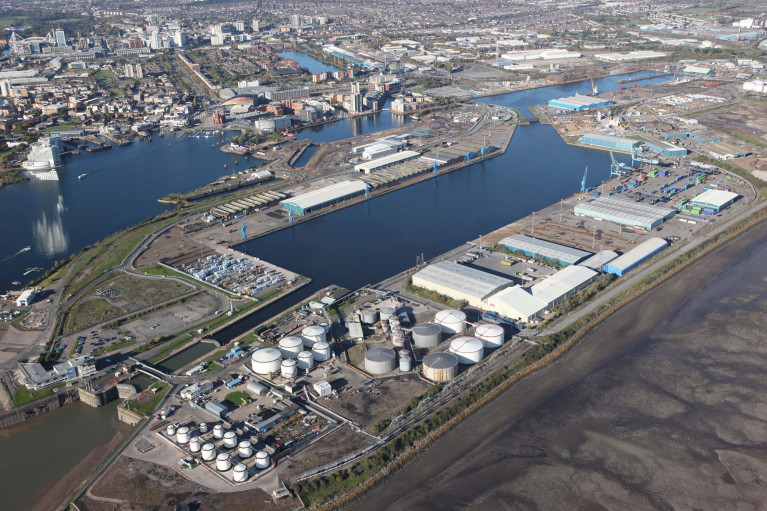Displaying items by tag: Decarbonisation
Dublin Port Company is recruiting for the role of energy and decarbonisation lead.
The State-owned commercial port says it “aims to play a strong role in achieving its own energy and decarbonisation goals, as well as supporting and influencing wider Dublin Port stakeholders in meeting their own energy reduction and decarbonisation ambitions”.
Dublin Port has 15,000 annual vessel movements, handles almost half of the Republic of Ireland’s trade, is the largest freight and passenger port in Ireland and is one of five major ports classified as Tier 1/Tier 2 ports in the National Ports Policy.
The energy and decarbonisation lead will head the development, implementation and delivery of plans to ensure that Dublin Port Company meets its energy and decarbonisation goals and commitments.
As the company provides critical national port infrastructure, the role will require a close working relationship with its stakeholders to ensure it understands their decarbonisation needs, in order to best support them in meeting their energy and decarbonisation goals.
The role will require leading the energy and decarbonisation team, especially working closely with the port’s technical manager, property and facilities manager and assistant harbour master, who are all key members of that team.
Key responsibilities also include work within energy and decarbonisation management, the NewERA Climate Action Framework for the Commercial Semi-State Sector, Dublin Port Energy & Decarbonisation Community, infrastructure and more.
Must-have requirements include a FETAC Level 8 undergraduate degree qualification in energy, environment, sustainability or an engineering discipline; a minimum of five years’ industry experience and ability to demonstrate competent knowledge in the fields of energy or sustainability; and management system experience (eg ISO 9001/14001/50001).
Those interested can find further information and apply for the position via LinkedIn HERE.
Ports Group in Wales Launch Ambitious Plan With Revolutionary Role in Decarbonisation
Several ports in south Wales and all operated by Associated British Ports (ABP) have launched an ambitious plan to decarbonise the region with its Future Ports for Wales Vision.
ABP has five ports in south Wales, (from west to east) Swansea, Port Talbot, Barry, Cardiff (above) and Newport. According to ABP, the sea change strategy outlines a decarbonised future and now the focus is on Port Talbot in west Glamorgan.
Together the ports played a key role in the creation of the modern industrial world and looking ahead, ABP recognises they will now need to play a pivotal role in Wales’ transition to a low carbon economy.
During the Future ports: Wales vision launch Andrew Harston, Director ABP Wales and Short Sea Ports said: “We need to imagine a changed world, understand its opportunities, and focus on the outcomes we need. We cannot make hard and fast predictions, but we can sketch the outlines of what needs doing. We need a new approach to realise the huge potential of Wales’ strategic port locations; to build the foundations of a new cycle of innovation and prosperity and time is of the essence.”
One of the key opportunities ABP is keen to seize is the potential to create a floating offshore wind (FLOW) centre of excellence in the Celtic Sea. The Port of Port Talbot is well positioned to do so and has the deep waters required. Port Talbot also has brownfield land ready for development, excellent rail connections, proximity to steel, marine and aggregates and access to thousands of skilled workers.
The port of Port Talbot is currently predominantly used for imports of coking coal, minerals and ores for Tate Steel. ABP plans to work with the steel giant and others to make its vision a reality.
Chairman of the Tata Steel UK board, Sandip Biswas, said: “The port is a vital connection for us allowing the direct import of raw materials for steelmaking.
We are excited to see ABP developing its vision for the future and look forward to working closely with ABP to realise these plans. It is only by working together in partnership that we can all develop a better, more sustainable, world for the future.”
Simon Brown, Divisional Port Manager for Wales & South West at ABP said: “We know that ports can’t make the changes alone. It will be necessary to develop a shared vision based on new ways of working between business, government, academia and communities. Greater collaboration will make sure that we share risks, rewards, and intelligence, and deliver better outcomes for the economy, the environment and our societies.”
For more information on ABP’s Vision and how the concepts might be implemented at port level visit here.
























































